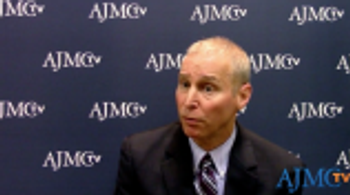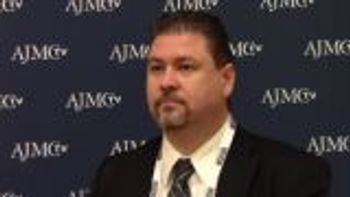
Payers
Latest News




A framework for researchers, providers, payers, or public health bodies identifies when it is most critical to distinguish between "average" population and individual patient response.

Specialty pharmaceuticals are changing the lives of patients with cancer and chronic conditions, but their high cost and increased used has drawn the scrutiny of payers. A review in this month's issue of The American Journal of Managed Care, which examined studies involving therapies for rheumatoid arthritis, multiple sclerosis, and breast cancer, found that when these drugs are used with the right patients, the value for patients is high.

The American Journal of Managed Care followed up the first meeting of its ACO and Emerging Healthcare Delivery Coalition with its first interactive conference call, which was open to all members. Anthony Slonim, MD, DrPH, a Coalition co-chair who on July 1 will become president and CEO at Renown Health in Reno, Nev., moderated the roundtable discussion.

Ira Klein, MD, MBA, FACP Discusses How Payers Can Offer More Personalized Cancer Care to Oncologists
Ira Klein, MD, MBA, FACP, chief medical officer, National Accounts Clinical Sales & Strategy, Aetna, suggests that oncology practices lack a sense of economic perspective that would otherwise allow them to offer a variety of services to their patients.

The American Journal of Managed Care convened a panel of experts to discuss advances and challenges in treating multiple myeloma, which has seen longer survival rates since the arrival of bortezomib and thalidomide.


The American Journal of Managed Care brought together than 125 diabetes advocates, providers, and educators, along with health plan leaders and pharmaceutical executives, to Princeton, N.J. Attendees gained insights into giving persons with diabetes with the right level of support to manage their disease.

How Can Molecular Diagnostic Companies Show Value if Insurers Won't Pay?

Can a diabetic's likelihood of developing complications depend on picking the right doctor? A study suggests it can.

Dr Peskin begins by stating, costs are exceedingly consequential. Cancer care and treatment is occupying, and with demographics being what they are, increasingly larger relative total cost of care across the US, including various national organizations.

A review of studies going back as far as 1981 shows that using genetic tests to diagnose and treat breast cancer helps save money, but with most research based on modeling, it's time for more support to gather data from real-world settings.



In this interview, Curtis Triplitt, PharmD, associate professor and assistant dean of research, Texas Tech University Health Sciences Center, Permian Basin, explains why diabetes should be treated with a patient-centered approach.

With the unveiling of the first FDA-approved system with the name "artificial pancreas," Medtronic will seek a new CMS code that would cover both the insulin pump and the continuous glucose monitoring parts of the process, according to the company.



In the final segment of the panel discussion, each panel member gave their final thoughts on the discussion topic.

After introducing panelists, Otis Brawley, MD, chief medical officer, American Cancer Society, David H. Finley, MD, FACS, national medical officer, Enterprise Affordability and Policy, Cigna Healthcare, Joy Larsen-Haidle, MS, genetic counselor, Hubert H. Humphrey Cancer Center, Ellen T. Matloff, MS, research scientist, Department of Genetics, director, Cancer Genetic Counseling, Yale Cancer Center and Rebecca Nagy, president, National Society of Genetic Counselors, moderator, Jan Berger MD, MJ, president & CEO, Health Intelligence Partners, editor-in-chief, The American Journal of Pharmacy Benefits, asked the panel to identify the current unmet needs and challenges in genetic testing.

In order to deliver quality and cost-effective cancer care, Michael Kolodziej, MD, Aetna's national medical director for oncology strategies, says that providers need to get better connected with payers.

Panelists agreed that the cost of the new agents discussed to treat melanoma will be a challenge, just as the cost of healthcare as a whole in the United States is a major challenge.

Dr Fendrick asked panelists what they think about the idea of centers of excellence for specific cancers and an evidence-based steerage.




